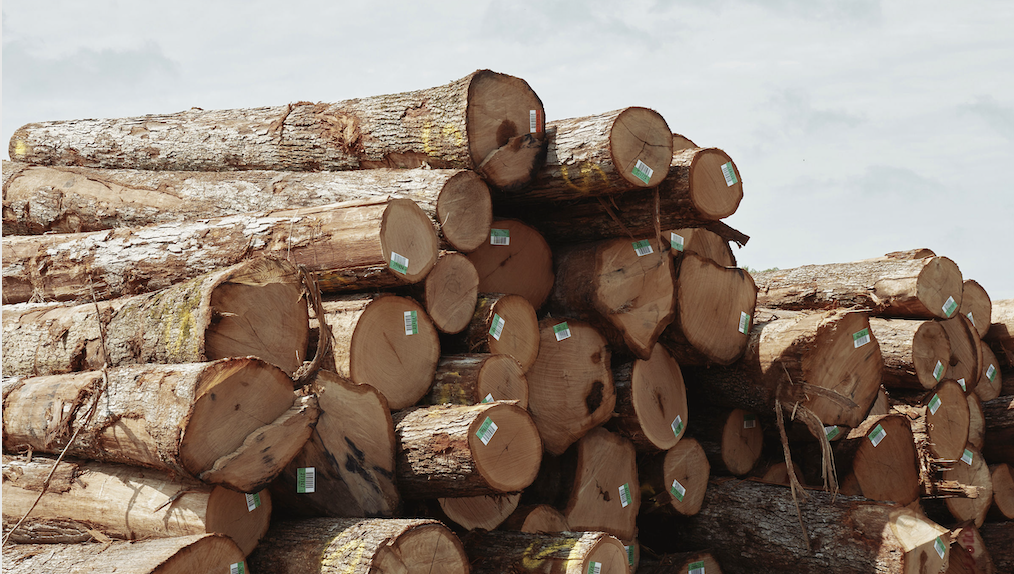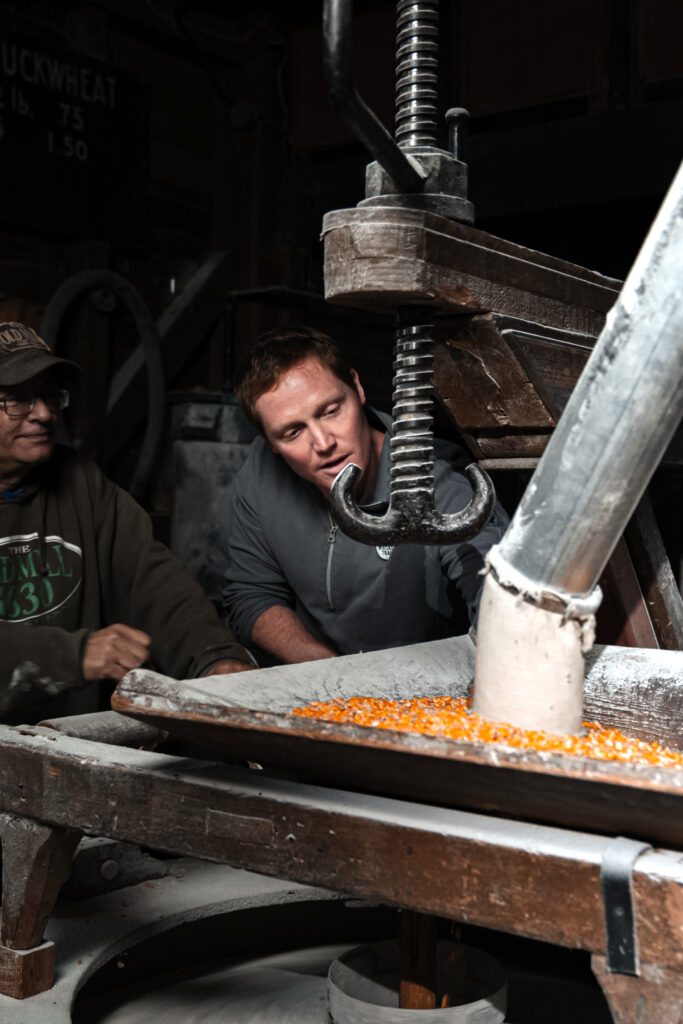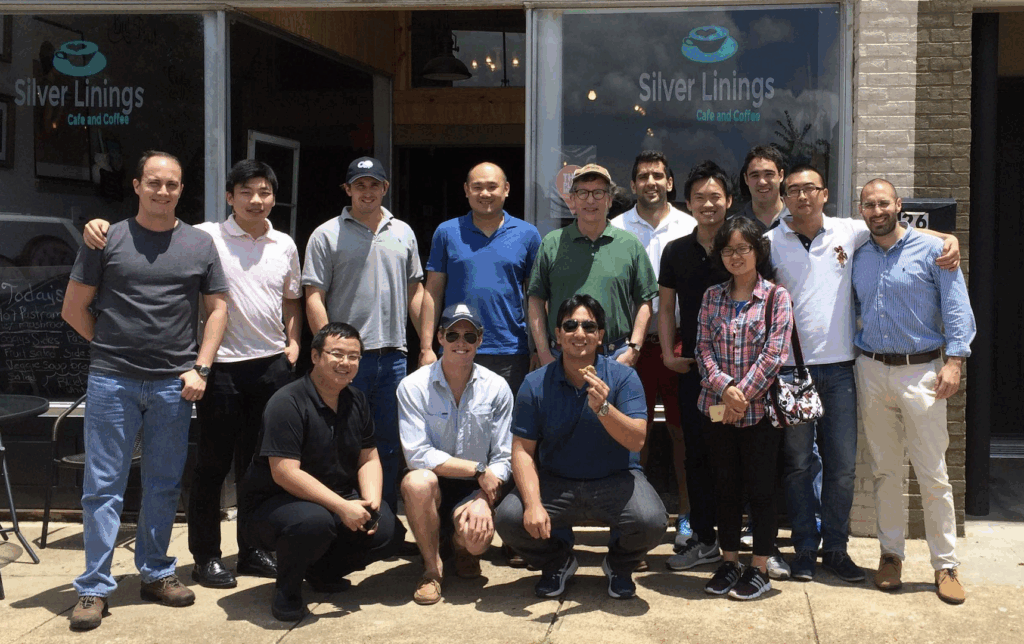
From the Volunteer State to Around the World
Tennessee producers and agricultural businesses are growing global every day. The Smith Center for International Sustainable Agriculture sought different producers and businesses across the state to learn how they engage internationally. The following story highlights how Tennessee agriculture and natural resources have a global impact.
Real. Life. Solutions.— at Home and Abroad
From cotton fields to distilleries, livestock to lumber, Tennessee’s agricultural professionals are embracing the global nature of their industries. Through innovation and connection, they continue to deliver Real. Life. Solutions. not just in the Volunteer State but all around the world.
Tennessee Craftsmanship in Wood Products Around the Globe
Thompson Appalachian Hardwoods is a family-owned, vertically integrated wood products company involved in every stage of the forestry supply chain. Claire Getty, the chief financial officer, describes their focus on exporting high-quality wood products to regions like Southeast Asia, the Middle East, Australia, and Europe:
“We prioritize highest, best use and full-force utilization. We believe it is our responsibility to connect our Tennessee and Northern Alabama forest landowners with the optimum market for all their products,” Getty explains. “When those families decide to harvest, it’s a big decision for a landowner, and we want that decision to be a beneficial one.”
A large amount of their product goes into furniture manufacturing. Getty is proud that there is demand for products from Franklin County, Tennessee, all around the world. “My dad has always said that we are in the fashion business. When you think about it, our products are going into furniture, molding, millwork, trim, wall paneling, etc. Our products become something that people want to display,” Getty says. “When you travel, you see these beautiful ways that people are using our product from Tennessee in their built environment.”

Tennessee Distilled Spirits, a Global Postcard
The Tennessee Distillers Guild, a trade organization representing distillers from Jack Daniel to small craft operations, works to advocate for, grow, and promote Tennessee’s distilling industry. Its public brand, the Tennessee Whiskey Trail, includes thirty distilleries and welcomes about eight million visitors annually. Distilled spirits are one of Tennessee’s leading agriculture-related exports, with many brands recognized worldwide.
“I like to think of Tennessee spirits as being a global postcard because people have fallen in love with how the product is made, who’s making it, and the hands that touch it. They want to connect with the farmer and distiller, and see the relationship that’s happening there,” Charity Toombs, guild executive director, explains.
For Toombs, the most promising part of international engagement is the global audience it brings. “When you think about coming from really populated areas, people are so taken by the vast landscape of Tennessee in comparison. The farmland shifts from West to East Tennessee, and you can taste that regional diversity in the products.”

Our Cotton Clothes the World
Cotton is one of Tennessee’s top agricultural exports, with as much as 75 percent of the crop sold internationally. In 2023 alone, Tennessee cotton exports brought in $278 million.
Jim Nunn, founder of Nunn Cotton Company, has been working in the cotton industry for over four decades. Nunn operates as a commission broker—buying cotton from farmers and gins and selling it to international merchants. “My job is the bridge between the grower and the global market,” he says.

Early in his career, Nunn attended conferences in Liverpool, United Kingdom, and Bremen, Germany. “Attending international cotton conferences in cities like these gave me something I couldn’t find anywhere else—a global perspective,” he says. “Through those connections, I built relationships that helped me transform my US-focused commission-based cotton business into something much bigger.”
Nunn emphasizes the importance of going abroad for those working in the cotton industry or students hoping to have careers within the field. “At the end of the day, cotton is more than a crop. It’s a global industry, deeply woven into the fabric of international trade, diplomacy, and human connection,” Nunn says. “And to thrive in it—whether you’re a broker, a grower, or a student—you need to see the world it’s grown in.”
Integral to Improving International Food Systems
Elizabeth and Kevin Mobley of Lewisburg, Tennessee, founded 007 Boer Goats five years ago. Although they didn’t initially plan for their concierge-style farm to go global, their emphasis on quality genetics quickly gained international attention.
Their focus to prioritize quality over quantity has opened international doors for their business. “I’ve come to find that the goat business is very universal and culturally rich.” Elizabeth Mobley says. “We quickly found that our international buyers didn’t want just quantity anymore. They were wanting to bring over a fresh set of genetics to help their herd be better health wise, production wise, and reproduction wise. Once we started exporting, word spread fast.”

The Mobley business’ global growth has shaped how they view their work. “If you’re just limited to the state of Tennessee or just the United States, then you’re potentially missing out on a large growth opportunity. If you think about the growth that you just opened yourself up to from just a state perspective to now a global perspective, it creates so many more opportunities,” she says.
Learn more about how we partner to develop and deploy sustainable solutions to the world’s grand challenges!
Explore More on
Features
MORE FROM THIS ISSUE

















